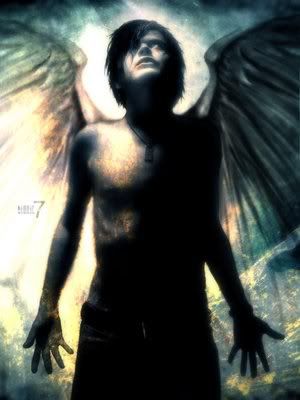Some months back, I read Anne Rice’s Angel Time and posted my impressions here. I just finished Danielle Trussoni’s Angelology, so it’s time to throw the literary gauntlet down.
A quick synopsis of Trussoni’s book: The story is about Evangeline, a young nun/librarian, who is pulled into the secret world of Angelology by a seemingly routine request. A scholar Verlaine, hired by a mysterious, ailing man, wants information about a correspondence between her convent’s founding abbess and the philanthropist Abigail Rockefeller. Quickly, Evangeline’s quiet and secluded world unravels. The two women’s archived letters point to a conspiracy to protect Evangeline from a brood of fallen angels (the Nephilim) and a hidden society of angel “scientists” determined to release mankind from Nephilim oppression.
While Rice and Trussoni take inspiration from Catholic angel lore, the contrasts between their books could hardly be greater. Rice’s angels are beneficent otherworldly souls; Trussoni’s are re-imagined creatures, some led astray by their lust for mortal women (The Watchers), and their hybrid offspring (the Nephilim) are as status-hungry as the 18th century French aristocracy.
Rice treads the themes of lost love and redemption. Trussoni’s story is essentially a young woman’s coming of age against a backdrop battle of good versus evil. Stylistically, Rice writes lush prose infused with startling emotion. Trussoni is a story-weaver who threads biblical, art history and ancient mythological intrigue at a pace that draws comparisons to Dan Brown’s The DaVinci Code.
Another contrast is the two books’ reception in the market. Angelology wins out big in terms of press reviews. Angel Time received measured praise but actually edges out Angelology according to readers (at least based on Amazon reviews).
Rice delivers an elegant, tragic tale that starts out slow but draws you in with a great sense of character and place. Trussoni gives you an awesome page turner that stumbles a bit in the middle, picks up steam again, and then the ending, ugh the ending (no spoilers here, but you can check out what readers have to say at Amazon). Trussoni sets the bar high with an amazingly researched, complex premise so I give her points for that.
When the people speak (per Amazon), Angelology gets 3 stars and Angel Time gets 3 and 1/2. I think that’s about right, and I’m the first one to be surprised by recommending an atmospheric, slow-burner over a gripping, layered mystery. But they’re both good reads, and I’ll entertain all protests on Angelology’s behalf.
On the Gay-o-Meter, it’s no contest; Angel Time wins hands down. Angelology’s Verlaine is a self-proclaimed Metrosexual, and if you squint real hard you could possibly imagine him as a sexy guy. But Angel Time has dark, brooding hitman Toby O’Dare who plays the lute, and the portrayal is totally believable. I’m afraid you just can’t beat that.


